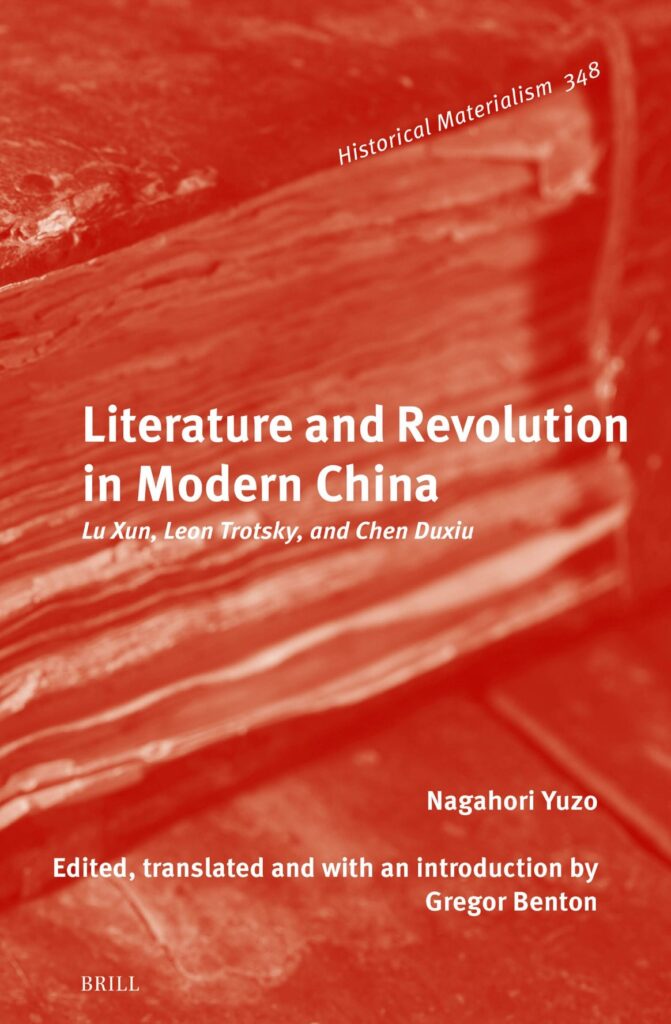Yuzo Nagahori
Biographical Note
Nagahori Yuzo, Keio University, is Professor Emeritus of Modern Chinese Studies. He has published monographs, translations and many articles on Lu Xun and the Chinese Trotskyists, including Okuda Kyoka, The Dentist Who Created Lu Xun’s Death Mask (2024).
Gregor Benton, Cardiff University, is Professor Emeritus of Modern Chinese History. He has published many books and articles on Chinese Communism, dissent in China, and the Chinese diaspora.
Readership
This book is especially relevant for academic institutions, university libraries, and researchers specializing in Lu Xun, modern Chinese literature, the Chinese Trotskyist movement, and the history of the Chinese Communist Party.
Table of Contents
Acknowledgements ix
List of Figures x
Introduction 1
Gregor Benton
Part 1
Lu Xun and Leon Trotsky
1 Lu Xun Embraces Trotsky’s Theory of Literature and Art 37
2 Lu Xun’s Theory of Revolutionary Literature and Trotsky’s Literature
and Revolution 52
3 Lu Xun Recognises the Significance of Trotsky’s Theory of Literature
and Art 68
4 Lu Xun’s View of Trotsky and Revolutionary Literary Theory from 1928
to 1932 74
5 On the Changes in Lu Xun’s View of Trotsky 86
6 Problems in the Chinese Translation of Literature and Revolution 98
7 “Reply to a Letter from a Trotskyite” 115
8 Mao Zedong’s Literary Line and Lenin’s Essay “Party Organiisation
and Party Literature” 143
9 Lu Xun and the Futian Incident: Mao Zedong’s Purging of the ab
Corps and Lu Xun’s Troubled Reaction 156
Nagahori’s Preface to Previous Editions of Lu Xun and Leon
Trotsky 173
Part 2
Chen Duxiu, an Oppositionist for Life
10 Who Was Chen Duxiu? 183
11 Chen Duxiu and the Xinhai Revolution 187
12 The Development of the New Culture Movement and the May Fourth
Movement 198
13 Founding and Leading the ccp 215
14 Leading the Chinese Trotskyists and Chen’s Later Years 226
15 The Evaluation of Chen Duxiu by the CCP in Power 236
Part 3
Appendices
Appendix 1: My View on Lu Xun, November 21, 1937 241
Chen Duxiu
Appendix 2: Literature and Revolution, April 4, 1928 243
Lu Xun
Appendix 3: Literature of a Revolutionary Period, April 8, 1927 246
Lu Xun
Appendix 4: In the Belfry, December 1927 252
Lu Xun
Appendix 5: A Glance at Shanghai Literature, August 12, 1931 259
Lu Xun
Appendix 6: How I Came to Write Stories, March 5, 1933 269
Lu Xun
Appendix 7: Reply to a Letter from the “Trotskyites” (June 3, 1936) and
the Reply (June 9, 1936) 272
Chen Qichang and Lu Xun
Appendix 8: Jottings in Mid-summer, October 1936 276
Lu Xun
Appendix 9: Wild Lily, February 1942 280
Wang Shiwei
Appendix 10: Politicians, Artists, February 1942 287
Wang Shiwei
Appendix 11: Chen Duxiu, Founder of Chinese Communism,
1976 290
Wang Fanxi
Selected Bibliography 299
Index 302

